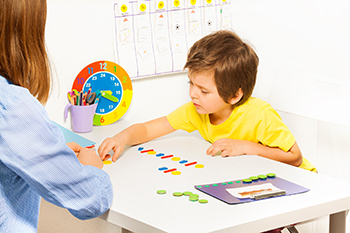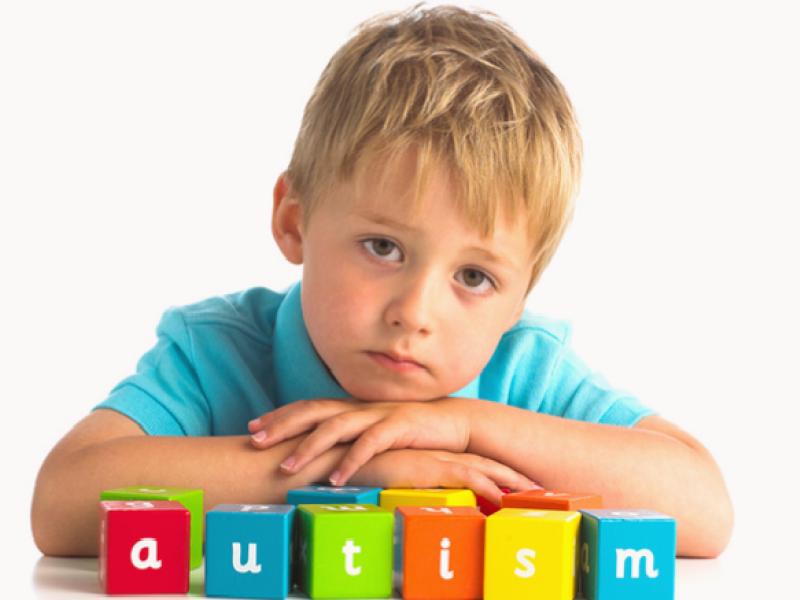
It is a disorder whose symptoms begin before the age of 3 years and manifests itself with inadequacies or limitations in social and communication areas, repetitive behaviors and limited interests. Although it is commonly known as Autism, it is actually a broad spectrum.
ASD is a neurodevelopmental disorder. Symptoms begin in early childhood. Although it was stated that it was rare in the past, recent studies show that it is more common today. The increase in the prevalence of the disorder, apart from child psychiatry, by the increase of awareness of other branch physicians and families also plays a role.
Intensive studies are still continuing on the etiology, that is, why it occurs in ASD. There is no single reason. There are studies that may be caused by genetics, environmental factors, maternal age and some vitamin deficiencies. In research on brain development, detailed research continues on the frontal lobe responsible for attention and executive functions, the amygdala related to social behavior and emotion, and the temporal lobe related to language development.
ASD Diagnosis

There is no biological diagnostic marker in the diagnosis. The diagnosis is made by clinical evaluation and monitoring of behavioral characteristics. Psychometric examinations can be performed in suitable children. Videos taken at home or in a social environment are useful in diagnosis. If deemed necessary, hearing test and neurologic examination may be appropriate. Many symptoms can be seen and evaluated in children under 2 years of age. Social communication deficiency can be observed in children younger than 1 year of age with clinical observation and these children should be registered as RISK CHILDREN.
ASD Symptoms:
Most of the symptoms are seen between 13-14 months of age. While development is normal in some of them, regression begins in the 1-2 years old range.
IN THE GROUP UP TO 1 YEARS OF AGE:
Biling or voice variety is low,
There is indifference to those who take care of or talk to them,
Unresponsive to caregiver’s leaving or calling,
Symptoms such as sleep problems, abnormal crying,
resistance to feeding or inability to communicate while breastfeeding can be seen.
SYMPTOMS IN GENERAL:
Restricted eye contact,
Inability to look when you call his name,
Doesn’t look at your face when you talk, does not interact,
Socially No responsive smile,
Not playing with toys purposefully,
Age-level expression and receptive language retardation,
Developing one’s own language,
Monotonous language,
Lack of empathy,
Inadequacies in understanding and interpreting emotions,
Inability to show what is wanted, showing one’s own wishes by the parent’s hand,
Sharing feelings or lack of sharing favorite objects,
Repetitive behaviors (stereotypes) (such as turning around, twisting hands, dealing with an object for hours),
Restricted interests (such as cars, maps, TV, clips) ,
(9800) 702) May be loosely hypotonic,
Motor development may be retarded,
There may be unresponsiveness to stimuli such as touch,
Sleep and feeding problems may develop,
No imitation skills .
Early diagnosis is very important in ASD. If your child has some of these symptoms, it is appropriate to seek professional support. I would advise you not to pay too much attention to the people’s statements such as ‘he will be smaller, he will grow up, his father was like that’. Although it is not easy to accept the situation, early diagnosis and treatment is very important.
TREATMENT:
First of all, family and caregivers should be well informed about ASD and their role in treatment.
The main treatment option is special education. It should be noted that they should receive special education from educators who have training on this subject.
Parent education and social-emotional development education are more appropriate for children under 2 years old.
Educational content at an older age should be arranged according to the age and cognitive development of the child.
From time to time, for additional diagnoses, drug treatment may be recommended for Attention Deficit, Anxiety symptoms, Behavioral Problems, Sleep problems.
Children with good mental performance progress faster in treatment. How long the treatment will take is related to the child’s learning capacity, mental development, use of words in the language of expression, and good social and family support. It may take 1-2 years for some children and longer for others.
Children with ASD who have good mental skills during adolescence may experience various problems because they can see the differences in their situations. Medical support may be necessary during this period. In adolescence, problems such as intense temper tantrums, sexual behavior problems, and physical harm may be more evident in children with poor performance.
Treatment should be organized with a multidisciplinary approach. The child’s development and problem areas should be reviewed at regular intervals with the following doctor.
I would particularly like to point out that there are no scientific studies showing that treatments such as alternative diet treatments, hyperbaric oxygen therapy, heavy metal removal therapy, neurofeedback are effective in ASD.

